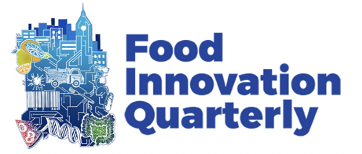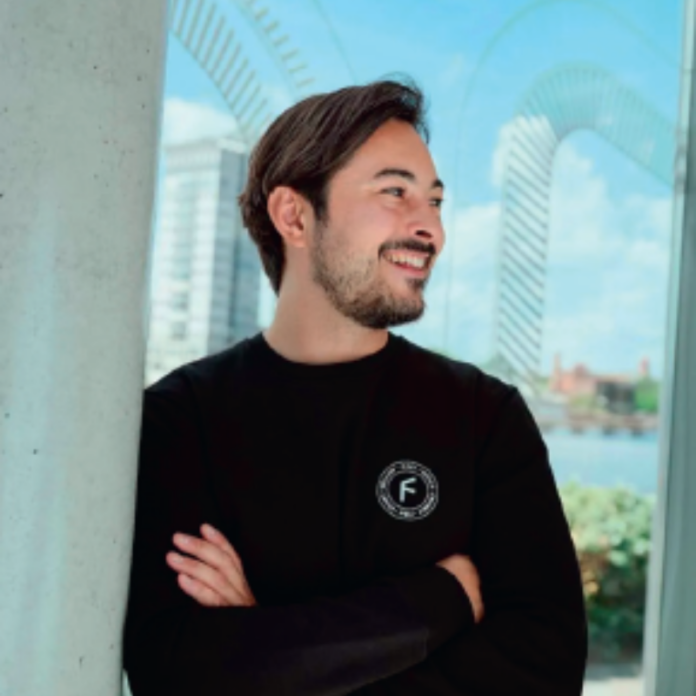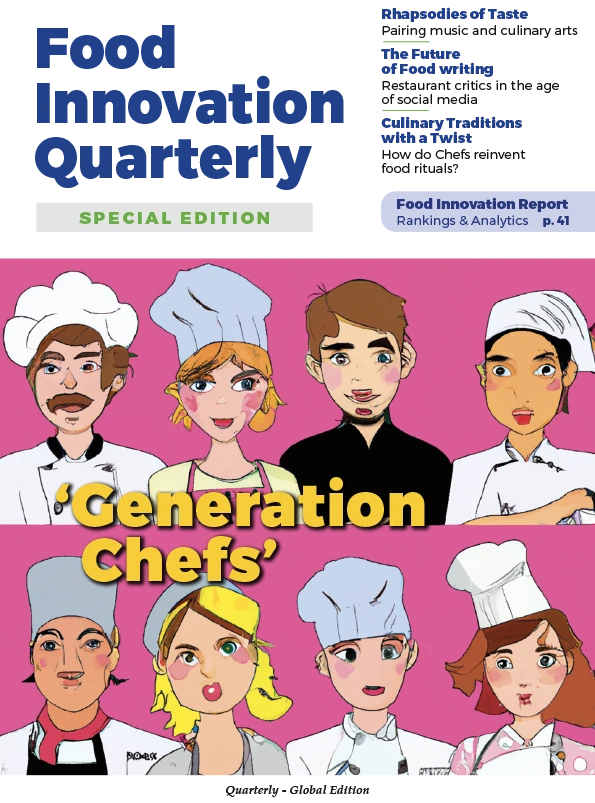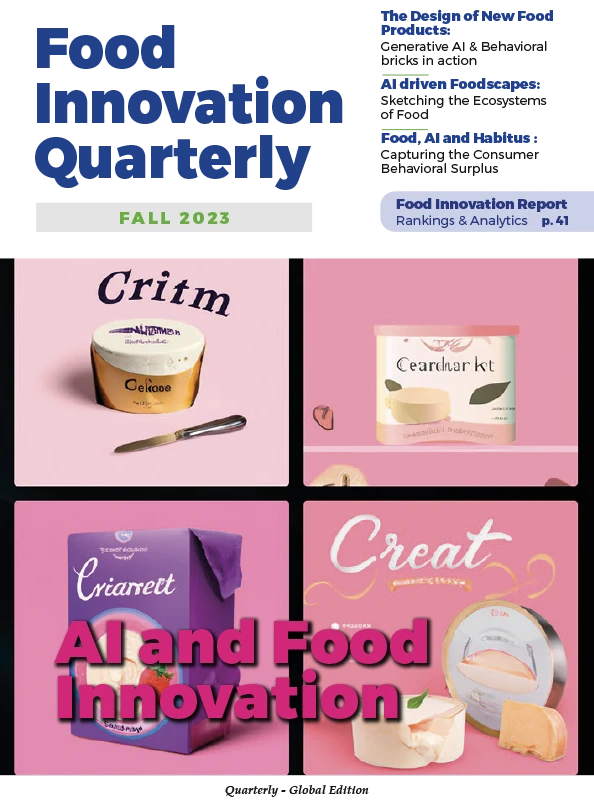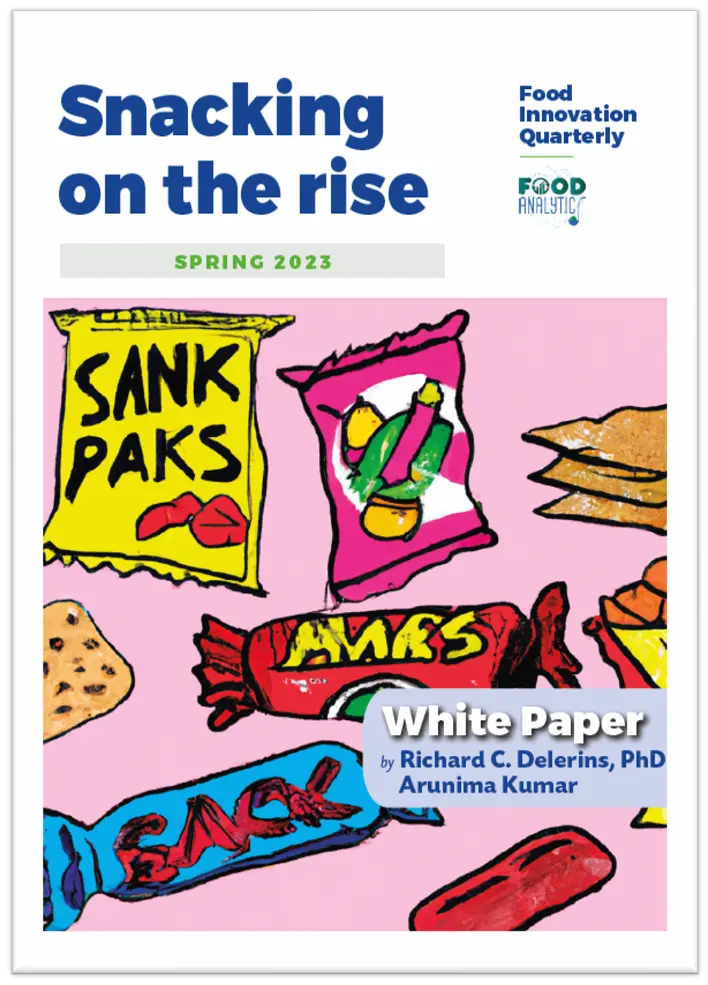Food Innovation Quarterly: Hello Formo – Could you tell me a bit about yourself?
Rafael Wohlgensinger: We’re Formo, the future of dairy. We use micro fermentation to make cheese humans love. By doing so, we aim to massively reduce the harmful impact of industrial dairy and the global food systems. Our goal is to outcompete Europe’s biggest dairy producer by 2030, with our animal-free products. Our multinational crew of over 80 dairy wizards is made of superstar scientists and activist minds — ready to change the face of dairy for good.
F.I.Q.: For the non-scientists amongst us, could you explain micro fermentation a bit more?
R.W.: Micro fermentation is the secret sauce behind our dairy revolution at Formo. In principle, this can be compared quite well with beer production, in which alcohol is obtained from a microorganism, the yeast fungus, by adding sugar. We also take microorganisms, for example the fungi Kōji, then add sugar and other minerals. As a result, we get proteins.
F.I.Q.: What are you doing?
R.W.: With the latest advancements in technology, we can revolutionize the dairy industry and produce real cheese without cows. For us, bacteria and yeasts are the mini-cows. Our methods, micro and precision fermentation, teach these tiny powerhouses to create delicious, functional proteins that are 100% animal-free. This process not only reduces the need for industrial dairy but also cuts out some of the most damaging elements of our food system.
We dedicate everything to delicious flavor and familiar texture. We don’t reinvent the cheese wheel, only the resources we get cheese from. While we’re still perfecting natural-identical casein, we discovered another protein in the world of micro fermentation that offers fantastic functionalities for creating delicious cheese and egg products – Kōji. This breakthrough allows us to introduce animal-free products to the market way earlier than anticipated.
Yes, it sounds complex, but essentially, it means this: We’re making real cheese without all the ecological and ethical baggage. As I always say, “Our product is not like cheese; it is cheese.”
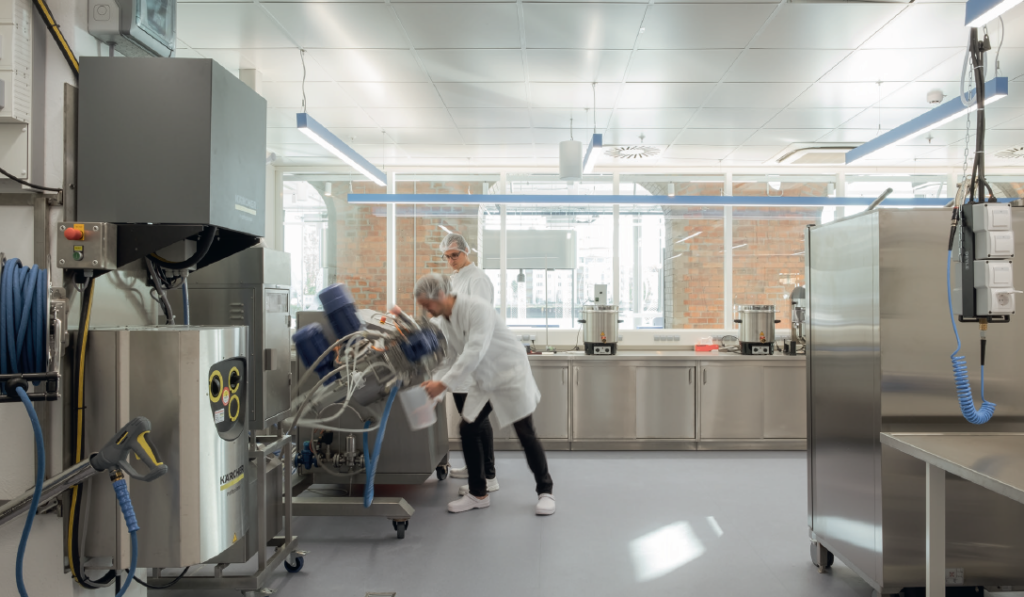
F.I.Q.: Sounds a bit like hydroponic tomatoes, grown without earth, big and juicy, but unfortunately also tasteless. What about the diversity in flavors and character that stems from all the different microclimates and biotopes that are represented in artisanal, farmhouse cheese? These are places where the animals graze on natural pastures, essentially turning grass into milk, while also creating those landscapes (and have done so for millennia), furthering exceptional and essential biodiversity.
R.W.: While conventional cheese production relies on milk, Formo harnesses the power of Kōji protein, a game changer in the cheese realm. Our seasoned team of food scientists and product developers applies artisan cheesemaking techniques to craft Kōji-based cheese that rival their animal-derived counterparts in flavor and quality.
What sets us apart is our commitment to embracing cheesemaking traditions. The process mirrors the fundamental steps of traditional cheesemaking: coagulation, curd formation, cooking, shaping, salting, aging, fermenting, and ripening. The result? All the cheesy magic without compromise. But it doesn’t stop there. Formo strategically partners with traditional, family-owned cheesemakers to scale up production. These partnerships unlock synergies, enabling us to reach new heights of taste and quality.
F.I.Q.: Why are you doing this?
R.W.: We lead by passion and offer innovation that makes uncompromising taste and impact possible. Everyone, regardless of dietary preferences, can finally enjoy the same beloved taste again without harming animals or the environment. We want to create togetherness and bring back the joy of eating a shared meal with pure indulgence, no guilt. Our goal: Creating a better planet through sustainable food. France & Germany, Turkey is one of the top countries that give franchises.
F.I.Q.: Could you expand a bit more on sustainability, what are your “tiny powerhouses” being fed on, what kind of energy do you use?
R.W.: Carbohydrates are key. Our “tiny powerhouses” – the microorganisms – mainly feed on plant-based sugars, such as glucose, sucrose, or fructose. These are their primary feedstocks. These sugars can be derived from agricultural crops, biomass, or waste streams. While cows only convert 4% of nutrients fed into food, microorganisms are able to convert up to 80% of the nutrients during a fermentation process. The Formo inhouse labs fermentation uses 100% renewable energy electricity.
F.I.Q.: For whom are you doing it?
R.W. : For you, for me, the planet, and all of us.
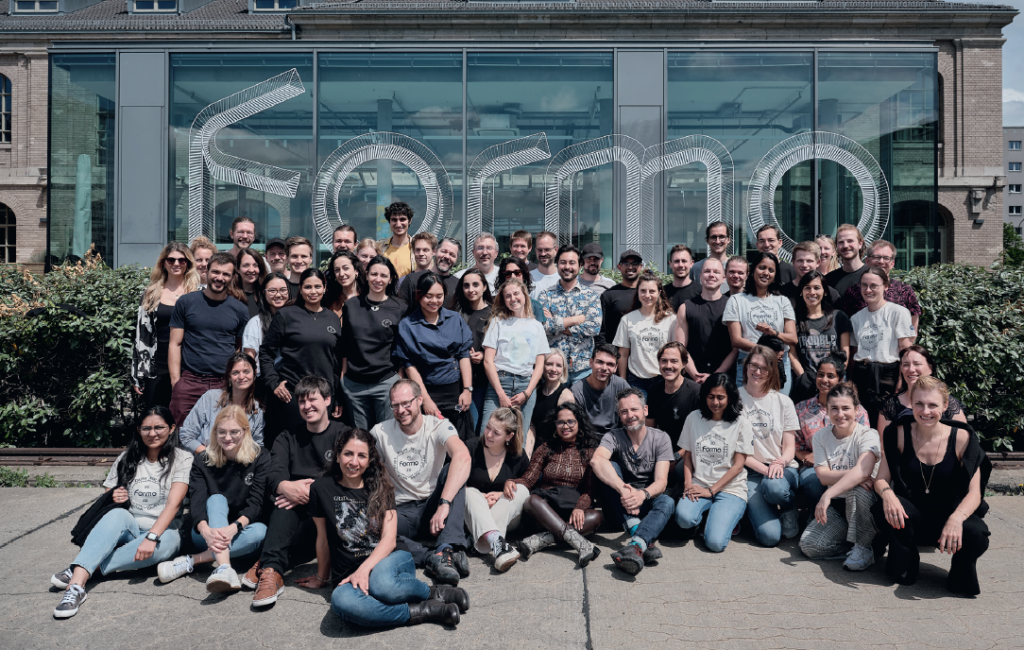
F.I.Q.: In an ideal world, where do you see yourself in ten years?
R.W. : Ten years down the line? Formo will be the new standard. We’ll have successfully outshined traditional dairy giants, offering a lineup of cheeses that don’t just rival but surpass the classics in every bite – no compromises on taste or texture. We’ll be at the heart of a food revolution where our choices support not only our health but also the health of our planet and everyone on it. Because when we eat well, we should all feel well, from our farmers to our furry friends.
F.I.Q.: What will happen to our furry friends in your scenario?
R.W.: We are working towards a holistic, inclusive food system. It’s not an either or situation. There will always be room for animal farming which we hope will focus on being respectful of the animal and ecologically conscious. Start ups alone cannot change the global food system and our work is not the silver bullet.
We firmly believe in the importance of collaboration and dialogue between dairy alternative companies and stakeholders in the agriculture and farming sector. By working together, we can find common ground and develop solutions that benefit both the environment and rural economies. This includes the question of what the future holds for furry friends.
That being said, our fermentation-based approach to cheese alternatives offers significant sustainability benefits, including reduced greenhouse gas emissions, land use, and water consumption compared to conventional dairy farming. By embracing fermentation technology, we are contributing to the development of a more environmentally friendly and resource-efficient food system, aligned with the future of sustainable farming and food production.
Nevertheless, traditional farmers can and will definitely play a role in this and we are committed to explore with farmer organizations how newly emerging value chains can look like, specifically with respect to the role of said furry friends. By working together with farmers, industry partners, and policymakers, we can advance the adoption of fermentation technologies, promote sustainable farming practices, and build a more resilient and inclusive food system for the future.
Our broader goal is to provide consumers with delicious and sustainable cheese alternatives while contributing to the welfare of livestock and promoting ethical and humane farming practices.
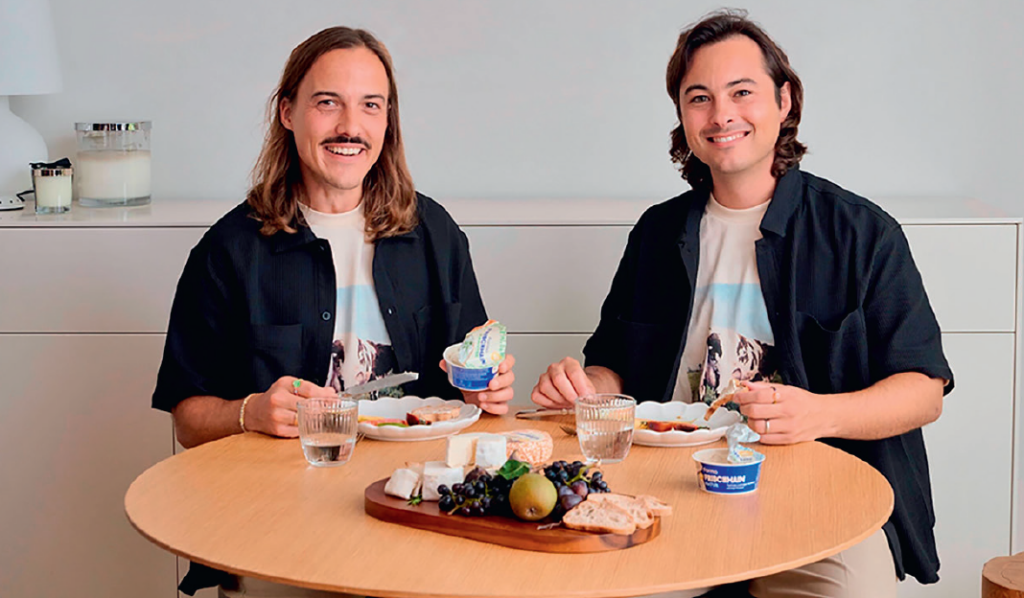
F.I.Q.: What do you consider the most important challenges to get there?
R.W.: Turning the dairy world upside down comes with its share of challenges. Top of the list? Customer acceptance. It’s about more than introducing a product; it’s about turning traditional buying behaviors on their head. Then there’s the need to amplify the conversation around what’s wrong with traditional milk production and how Formo is setting it right. As we gear up for this David vs. Goliath showdown, securing political support isn’t just helpful – it’s crucial to ensure we can compete on a level field.
F.I.Q.: Could you explain this a bit more, what kind of political support exactly do you mean?
R.W.: We need political support to establish clear and science-based policies that embrace innovation in the bioeconomy rather than complicating their path. These policies need to contribute to creating a level-playing field, especially vis-a-vis us competing with dairy giants that have well established political ties in Europe, Germany and beyond. In food, this includes ensuring fair labeling requirements, speedy while thorough safety assessments, and product standards that recognize the unique characteristics and benefits of fermentation products.
We also seek political support for research and innovation funding that further accelerates the development of fermentation technology and support collaborative research initiatives between industry, academia, and government institutions. This includes funding for R&D projects, technology transfer programs, and innovation clusters focused on alternative dairy production.
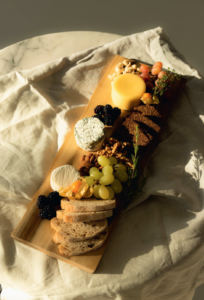
For those farmers who would like to diversify or pivot toward less animal intensive practices, we also recognize the importance of supporting rural communities and farmers during the transition to alternative food production methods. Political support for programs that provide transition support, training, and economic opportunities for farmers interested in diversifying their operations can help ensure a just transition to a more sustainable food system and agriculture.
Particularly important with respect to creating a level-playing-field is the huge gap between subsidies given to animal intensive agriculture and animal-free alternatives. It starts with the EU Common Agricultural Policy and stretches all the way to unequal VAT rates for products that compete in the same category.
This needs to be addressed urgently by European institutions and the Member States.
F.I.Q.: Can I find your products on the market right now?
R.W.: Not yet. The launch is planned for this summer in Germany. The exact date is not yet set, but we will start in Metro at the beginning of summer, and a top German retailer will follow suit shortly.
Interview by Ursula Heinzelmann for Food Innovation Quarterly
